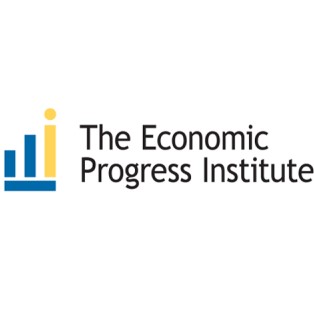
PROVIDENCE – Rhode Island’s $13.6 billion fiscal year 2023 budget makes some substantial investments in both the state and its residents, while leaving on the table some important proposals, the Economic Progress Institute concluded in its review of the state’s fiscal 2023 budget and 2022 General Assembly legislative session released Wednesday.
The nonpartisan research and policy organization examined more than 50 policies that directly impact the lives of everyday Rhode Islanders and took an in-depth look at legislative priorities relating to: tax, budget and revenue fairness and equity; economic equity and justice; equity for immigrants; equity in health care; and democracy and equity in action.
The report found the legislative session and budget brought many welcome achievements, with some valuable investments in people, programs and policies, despite some efforts that fell short and a failure to heed the recommendations of the Rhode Island Foundation’s Make it Happen report to use the money received from the American Rescue Plan Act through the State Fiscal Recovery Fund to implement bold, transformative, equity-centered change.
However, the report noted 10 key wins that promote equity and economic security for Rhode Islanders:
- More families eligible for child care assistance, better pay for providers: The income limit for eligibility for subsidized child care through the Child Care Assistance Program was raised from 180% of the federal poverty level to 200% FPL ($41,454 to $46,060 for a family of three), allowing more families to qualify for assistance. The “exit” income limit was also raised, from 225% FPL to $300% FPL ($51,817 to $69,090 for a family of three) so that families can continue to receive assistance as wages increase.
- Increased economic stability for families receiving benefits from RI Works – a financial and employment assistance program for parents and families with little to no income who have children high school age or younger: Two changes support parents in gaining skills for obtaining a well‐paying job: extending the lifetime limit from 48 to 60 months to give parents more time to develop skills, and permitting parents to attend the Community College of Rhode Island for two years as their sole activity. Parents working part‐time will be able to keep more of their cash assistance benefit to supplement wages with the increase of the earned income disregard to $300 from $170 per month. The law was also amended to exclude the new and very welcome State Child Tax Credit of $250 per child from counting as income so that families receiving RI Works will benefit from this payment.
- Cover all kids: All children, regardless of immigration status, are eligible for RIte Care Health Insurance coverage, as long as they meet other program requirements, and thus have access to quality health care.
- Post-partum coverage: RIte Care coverage for women who give birth while enrolled in RIte Care will be extended to 12 months post‐partum, an expansion from the current 60‐day limit.
- Driver’s licenses for all: Rhode Island residents who do not have legal immigration status will be able to obtain a driver’s privilege card. To be eligible, the person must show that they have paid taxes to Rhode Island for at least one year and meet other requirements for obtaining a license.
- New investments in adult education: State funding was increased for the network of 19 adult education providers around the state for the first time in over 10 years. The additional $540,000 will be quickly distributed to providers to help meet rising costs. The budget also includes $5 million ($2 million for fiscal 2023) from the $1.1 billion in funds the state is receiving from the American Rescue Plan Act.
- Increase wages for direct care workers: Wages paid to direct support workers employed by home health agencies and workers hired by individuals through the Independent Provider and Personal Choice programs will be paid a minimum of $15 per hour.
- Working to create affordable housing for all and to end homelessness: The budget appropriates $250 million of ARPA funds for affordable housing, with $97 million to be spent in fiscal 2023 on a range of investments: development of housing for Rhode Islanders at different income levels, including those with very low income; temporary or permanent shelter to address homelessness and services to support people in housing; down-payment assistance; home‐repair; and community revitalization.
- Creating opportunities and the decriminalization of poverty: Legislation was passed to require, rather than permit, judges to take into consideration the ability of defendants to pay court costs. This will free many indigent defendants from the ongoing burden of additional debt. The bills legalizing cannabis for adult recreational use include strong equity provisions such as the automatic expungement of cannabis possession records and provision of financial and other support for individuals and communities harmed by the war on drugs to participate in this new market.
- Passage of Let RI Vote Act: The act expands and simplifies the process for voting securely by mail and requires municipalities to maintain at least one drop box where voters can deposit ballots through the close of polls on Election Day.
The agency said plenty of room remains to enact even bolder and more equity-centered legislation and spending commitments in future budgets and legislative sessions. It called for better investments for Rhode Islanders, especially for communities of color, as well as workers and lower-income residents. It also said the ongoing COVID-19 recovery supported by substantial federal relief aid provides many opportunities to do more than return to the old normal.
The full report can be found here.











